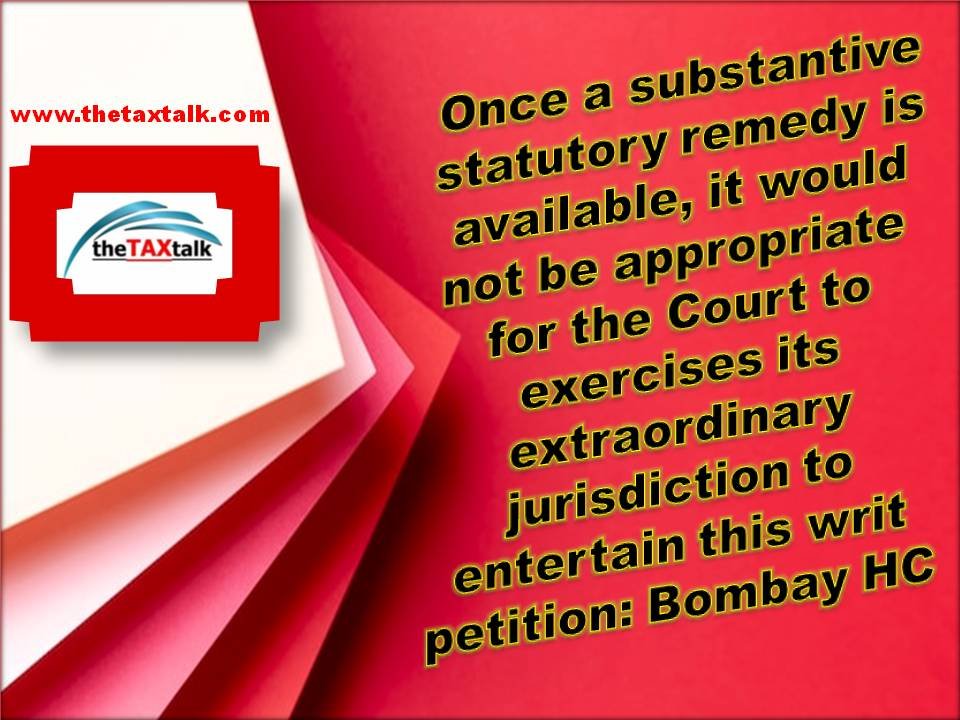![]()
Once a substantive statutory remedy is available, it would not be appropriate for the Court to exercises its extraordinary jurisdiction to entertain this writ petition: Bombay HC
The following 3 issues were there before the High Courtin case of Hindustan Unilever Ltd vs. Deputy commissioner of Income Tax (International Taxation) circle 2(2)(2), Mumbai, as under:
1. Can a court deal with every issue under writ filed under article 226 when the alternate remedy is available in statutory provision???
2. What is the maximum time limit for passing an order under section 201(1) or section 201(1A)? Whether the order in case of M&M is affirmed or left open by the court? Is the order of M&M wrongly interpreted by the People?
3. Can a AO comment on the judgement delivered by the High Court in inappropriate manner and irresponsible language?
The Hon’ble Bombay High Court in case of Hindustan Unilever Ltd vs. Deputy commissioner of Income Tax (International Taxation) circle 2(2)(2), Mumbai in writ petition no. 4325 of 2024 held that writ court cannot interfere in each and every order.
“Once a substantive statutory remedy is provided and available to the petitioner, it would not be appropriate that the Court exercises its extraordinary jurisdiction under Article 226 of the Constitution and entertain this writ petition. If the proposition as canvassed by Mr. Mistri is to be applied, then the appellate remedy as provided under the Act would remain to be a paper provision and every order passed by the Assessing Officer, on the considerations as canvassed before us….”
With Respect to limitation of passing the order under 201 of the Income Tax it is held that
“In our opinion also the decision of this Court in DIT Vs. M & M Limited (Supra) although affirms the decision of the tribunal when the tribunal, observed that maximum time limit for passing an order under section 201(1) or section 201(1A) would be the same as prescribed under section 158(2) that is one year from the end of the financial year for which proceedings under section 201(1) are initiated.
The High Court has not conclusively and categorically held that the Tribunal was correct in laying down such limitation when the legislature itself has not prescribed any limitation……..
In fact, from the reading of the observations of the High Court, it appears that such issue was in fact left open and what has been recognized is that the powers under Section 201 are required to be exercised within a reasonable time.”
With respect to AO’s comment on Delhi High Court Order, the court stated that
“We also warn the concerned officer to be extremely cautious and careful in future so as to remain within the limits of propriety, in the discharge of his quasi-judicial role, conferred under the provisions of the Income Tax Act. We also urge the learned ASG that in the larger interest of the officers of the Revenue and with a hope that such issues do not percolate in the orders being passed by the Officers of the Revenue, this concern needs to be taken up at the appropriate level of the Ministry, so that the limits of propriety, the tenor and language used by the officials in passing orders, and on understanding of the legal principles, is well inculcated in such officers, of the Revenue, by having regular training sessions.
The copy of the order is as under:

